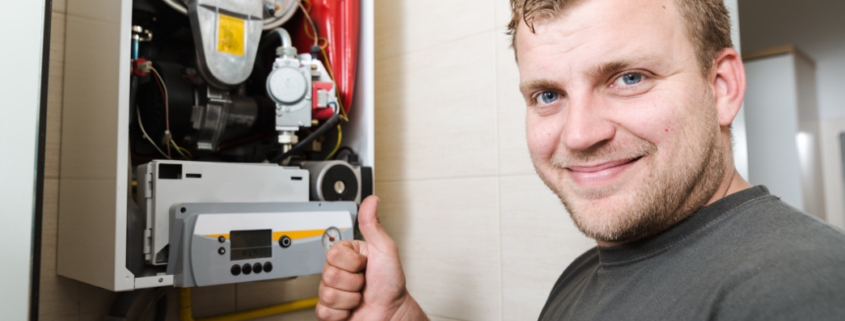Proper maintenance is essential in preventing pipe leaks, which can cause water damage and lead to expensive repairs and replacements. To avoid such predicaments, we’ve compiled a list that can guide you through various causes of leaks and some easy steps to fix them.
Age and Corrosion
Over time, pipes will deteriorate and develop weak spots that can eventually lead to leaks. Signs of corrosion include rust-colored water, low water pressure, and frequent pipe-related issues. To prevent leaks, consider replacing aging pipes, especially in older homes.
High Water Pressure
High water pressure can strain your pipes and cause leakage. It also puts undue stress on the pipe joints, fittings, and seals.
Regularly check water pressure using a pressure gauge and ensure it is within the recommended range. Protect your pipes from unnecessary strain if your water pressure is consistently high by having Trusted Home Services install a pressure regulator.
Pipe Clogs and Blockages
Clogs and blockages cause backups and increase pressure within the plumbing system. It is imperative to avoid flushing items such as sanitary products, grease, and paper towels down any drain. Use drain screens and regularly clean them to prevent debris from entering your pipes.
Extreme Temperature Changes
Fluctuations in temperature can crack pipes due to natural expansion and contraction. Insulate exposed pipes in your basement, crawl space, and attic to protect them from these fluctuations in temperature. One suggestion for older homes especially, is to open cabinet doors during the colder months to allow warm air to circulate around pipes within walls.
Pipe Joint and Fitting Issues
Loose or faulty pipe joints and fittings are very common causes of leaks. Over time, these connections can become loose. Inspect pipe joints and fittings regularly for any signs of leaking or corrosion, and tighten them very carefully.
Let Us Help You Maintain a Leak-Free Plumbing
Taking proactive measures to prevent pipe leaks can save you time and money in the long run. So, if you encounter such issues or need assistance with your plumbing system, Trusted Home Services is here to help. Our experienced plumbing professionals offer reliable and efficient plumbing services to ensure your home remains leak-free.
Additionally, you can become a member of our plumbing maintenance plan for a very affordable price. This includes one annual visit where our experienced technicians flush your water heater and inspect all fixtures.





FOLLOW US